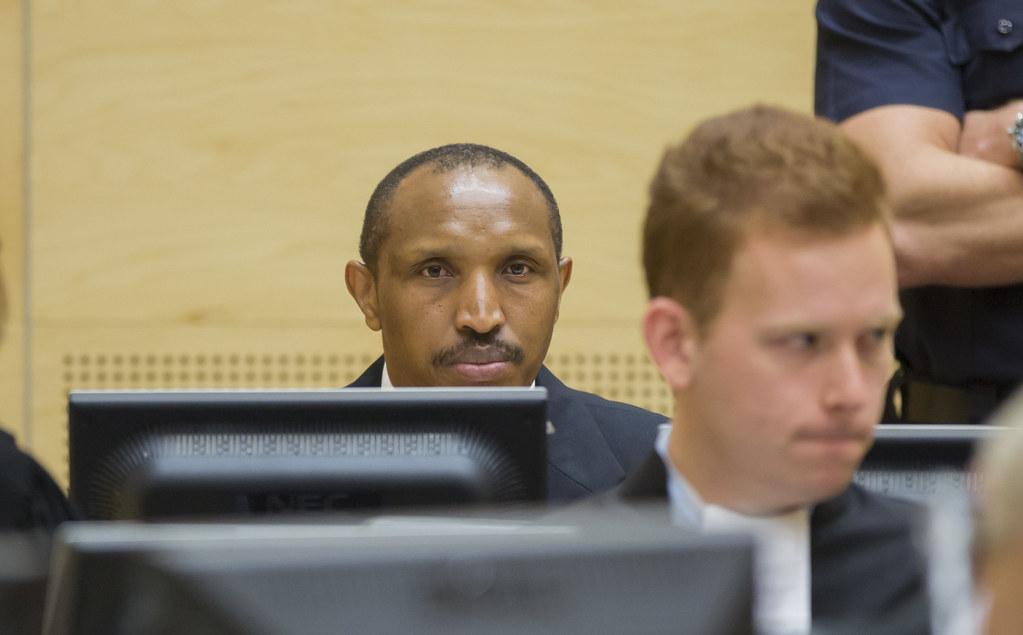As the International Criminal Court (ICC) Appeals Chamber considers whether it should unconditionally release former Ivorian president Laurent Gbagbo, the prosecution has, in a new development, said it will seek to retry the 74-year-old defendant if the appeal against his acquittal is upheld.
Accordingly, the prosecution says Gbagbo should not be definitively released, as the prospect of a retrial would motivate him to abscond.
The prosecution’s intention to seek a retrial took defense lawyers by surprise at the February 6 hearing on Gbagbo’s application for unconditional release. In fact, in submissions earlier that day, lawyers for Gbagbo and his co-defendant, Charles Blé Goudé, had made the case that since the only remedy sought by the prosecutor’s appeal against the acquittal was a declaration of a mistrial, judges had no more reason to impose conditions on the defendants.
Gbagbo and Blé Goudé were acquitted in January 2019, but judges imposed conditions on their release at the prosecution’s request. The Appeals Chamber agreed with the prosecutor that the two were a flight risk. In the finding on flight risk, the chamber said it relied on “the numerous decisions in the present case in which it was determined that the seriousness of the charges with the resulting potential high sentence, the existence of a network of supporters and the means available to Mr. Gbagbo constitute incentives to abscond.”
Gbagbo’s lawyer, Dov Jacobs, argued at the hearing that any question of any alleged flight risk is not applicable “because after the current phase of proceedings the trial will come to an end. In other words, Gbagbo has nothing to flee from.” Similarly, Geert-Jan Alexander Knoops, whorepresents Blé Goudé, said that conditions were imposed on the duo because judges considered that there was risk that they would flee if proceedings against them continued. “Conditions were found necessary and the OTP [Office of the Prosecutor] requested in order to safeguard proceedings. Given that the prosecution seeks a mistrial but not retrial, the basis for which your chamber rendered the decision no longer applies,” argued Knoops.
However, prosecution lawyer Priya Narayanan, who spoke after the defense lawyers, said the prosecutor would seek a retrial if the Appeals Chamber overturned the acquittal. She said the shape and scope of the envisaged retrial, including considerations, such as having a narrow version of the existing case and deciding whether additional witnesses are needed, would be determined after the appeal judgement.
Narayanan said the prosecution had not indicated earlier the nature of any post-appeal proceedings because after Trial Chamber I acquitted Gbagbo and Blé Goudé, it took five months to issue the written judgement. Narayanan added that, in its appeal against acquittal, the prosecution requested the case record, which implied the possibility that it could seek a retrial.
In that appeal, the prosecution said that, rather than requesting the appeals chamber to order a continuation of the trial before Trial Chamber I that is no longer constituted and one of whose judges is no longer at the court, or asking appeals judges to order a new trial, the prosecution was requesting a declaration of a mistrial. It said this would leave the case in the hands of the prosecutor “to decide on its future course and how justice may best be served in this case.”
Knoops said, by indicating at the February 6 hearing that it would seek a retrial, “the prosecution has created more uncertainty of the future course of the trial and its length, yet in the appeal brief it had requested only for a declaration of a mistrial.”
Defense lawyers contended that it was necessary to unconditionally release Gbagbo and Blé Goudé, as the prosecutor’s appeal would considerably extend the period of time during which they would be deprived of their rights.They said the duo’s rights to freedom of movement, speech, and political participation were being violated by the release conditions.
Jacobs also said the Appeals Chamber needs to explain the factual basis it relied on to place these restrictions. According to him, unless the prosecution provides current information to show a “concrete risk” of flight – which he said the OTP had not done – the chamber should remove all the restrictions.
Narayananresponded that the release conditions were still necessary. She said: “Our seeking of a declaration of mistrial doesn’t change this because in the event the appeal succeeds, [the prosecutor] intends to pursue a new trial before a new trial chamber, that is, a retrial. She has taken the decision knowing post-election violence victims are yet to see justice.”
The prosecution lawyer said the Appeals Chamber found compelling reasons to impose conditions on release, and in relation to both individuals, the facts have not changed to justify removing the conditions.
Fears over victims’ safety
Victims’ lawyer Paolina Massidda said that the impact that release without conditions would have on the safety and wellbeing of victims and witnesses necessitated maintaining the conditions. Massidda told the court that victims were concerned about the possibility of further crimes being committed and attempts to compromise the integrity of proceedings if Gbagbo and Blé Goudé were released unconditionally. This was particularly because such a release may galvanize the defendants’ supporters “who in the past demonstrated animosity towards victims still perceived to be partisans of the opposite side.”
According to her, the political climate in Ivory Coast is deteriorating with the election to be held this year, and victims fear a repeat of the post-election violence experienced in 2010-2011.
“Victims have expressed their fear that releasing the defendants could allow them to return to Ivory Coast and seek political power in order to actively hinder appeal proceedings before the court,” said Massidda. “Victims also indicated that should the defendants be re-elected they may use their powers to obstruct the course of justice before the court and render a further prosecution impossible.
This article was first published by International Justice Monitor.







